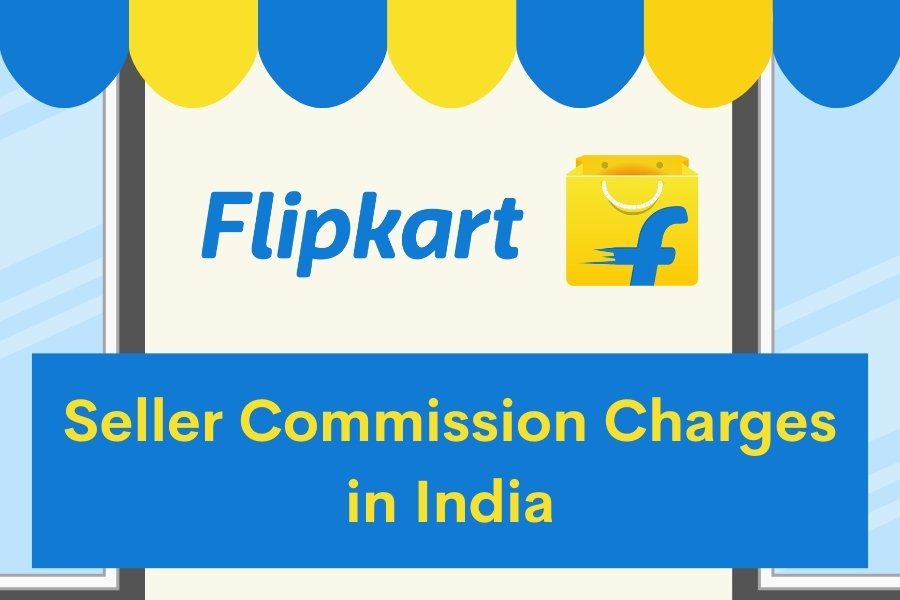
Selling on Flipkart offers an incredible opportunity to reach millions of customers across India. However, understanding Flipkart’s commission structure and associated fees is crucial to ensuring profitability. Whether you’re a new seller or an experienced one looking to optimize your margins, this guide will break down everything you need to know about Flipkart seller commission charges and fees—plus how Flipkart Account Management Services can help streamline the entire process.
Guide To Flipkart Seller Commission Charges and Fees
One of the most important fees that Flipkart charges its sellers is the commission fee. This fee is a percentage of the selling price of the product and varies depending on the category of the product. For example, the commission fee for electronic products may be higher than the commission fee for clothing items.
What Are Flipkart Seller Commission Charges?
Flipkart charges sellers a commission fee on every successful sale. This fee is a percentage of the product’s selling price and varies by category. For example:
| Product Category | Commission Range |
| Fashion (Clothing, Footwear) | 15% – 25% |
| Beauty & Personal Care | 12% – 20% |
| Electronics Accessories | 5% – 13% |
| Home & Kitchen | 10% – 17% |
| Baby Products | 8% – 15% |
| Books and media | 5% to 7% |
These rates can fluctuate based on demand, season, or changes in Flipkart’s policies. It’s important to stay updated to avoid surprises in your profit calculations.
Key Fee Components Every Seller Should Know
In addition to the commission fee, Flipkart sellers are subject to several other charges. Here’s a breakdown:
Fixed Fee
This is a flat fee based on the selling price range of the product. For instance, a product sold between ₹250-₹500 may incur a fixed fee of ₹10-₹20.
Shipping Fee
Shipping charges vary based on product weight, delivery location (local, zonal, or national), and shipping method (standard or express). Sellers can either use Flipkart’s logistics network (Flipkart Advantage) or arrange shipping independently.
Collection Fee
This is a small fee Flipkart charges for handling payments from the customer. Typically, it ranges from 2% to 3% of the order value.
GST on Fees
All applicable fees are subject to an 18% GST. While this is an input tax credit for GST-registered sellers, it’s still a factor that affects cash flow.
Return Fees
In case a customer returns a product, you may be responsible for the return shipping fees and any additional handling charges.
Flipkart Fee Calculation Example
Let’s understand how fees affect your earnings through a real-world scenario:
Product: Bluetooth Earphones
Selling Price : ₹1,000
Commission (Category: Electronics Accessories) : 12% = ₹120
Fixed Fee (₹500–₹1,000 slab) : ₹30
Shipping Fee (500g, zonal) : ₹45
Collection Fee (2%) : ₹20
GST (18%) on Flipkart Fees : ₹39.6
Total Deductions : ₹254.6
Net Seller Earning : ₹1,000 – ₹254.6 = ₹745.4
This shows how multiple charges can significantly reduce profit margins. This is where expert guidance from Flipkart Account Management Services becomes invaluable.
Maximizing Profitability as a Flipkart Seller
Now that you understand the cost structure, here are a few strategies to increase your sales or earnings:
Optimize Product Listings
Clear titles, bullet points, high-quality images, and SEO-rich descriptions can boost visibility and sales. Many sellers outsource this to Ecommerce Account Management Services for expert optimization.
Choose High-Margin Products
Avoid low-profit-margin items that are heavily affected by commission and shipping fees. Focus on products where you can retain at least a 30-40% margin after all charges.
Bundle Products
Product bundling not only increases the average order value but also optimizes shipping and reduces per-item costs.
Stay Updated with Flipkart Policies
Flipkart frequently revises its fee structure. Subscribing to seller newsletters or hiring professional Flipkart Account Management Services ensures you never miss out on policy changes or promotions.
Use Fulfilled by Flipkart (FBF)
This service allows sellers to store inventory at Flipkart warehouses. While it involves additional storage charges, it boosts delivery speed, increases buyer trust, and can enhance your product rankings.
Why You Need Flipkart Account Management Services
Running a profitable Flipkart store isn’t just about listing products. It’s about strategy, optimization, and smart management. This is where Flipkart Account Management Services come into play.
These services typically offer:
- Catalog & Listing Optimization
- Pricing Strategy & Competitor Analysis
- Inventory & Order Management
- Ad Campaign Management
- Reporting & Performance Analytics
- Policy Compliance & Support Handling
Whether you’re scaling operations or just getting started, working with Novel Web Solution an experienced ecommerce management partner saves time and increases profitability.
Tips to Minimize Charges
To minimize the commission charges and fees associated with selling on Flipkart, consider the following tips:
Optimize your pricing strategy to cover commission charges while remaining competitive.
Monitor your performance metrics to ensure you qualify for lower commission rates.
Efficiently manage your inventory to avoid incurring storage fees for unsold products.
Provide excellent customer service to reduce the likelihood of returns and associated fees.
Conclusion
Understanding Flipkart seller commission charges and the overall fee structure is crucial for building a sustainable and profitable online business. From commission and shipping to GST and collection fees, every component affects your bottom line. With strategic pricing, product selection, and the help of Flipkart Account Management Services, you can stay ahead of the competition, streamline operations and achieve higher profitability on Flipkart.
Need help managing your Flipkart account?
Explore top-rated Flipkart Account Management Services to get expert support in boosting visibility, reducing operational costs, and increasing your ROI.



